North Carolina War Between the States Sesquicentennial
Northerners Question Lincoln's War
"Slavery is no more the cause of the war than gold is the cause of robbery."
New Jersey Governor Joel Parker
The people and political leaders of the Northern States in early 1861 were not a unit against the
American South's decision for poltical independence. As stated by author Joel Silbey below, the historian
of the War Between the States was "a camp follower of the successful army" and wrote history with the
approval of military commanders and Northern politicians.
The following describe the opposition to Lincoln's
war policies and include many Northern Democrats who were tainted as "rebel sympathisers" by radical
Republicans for simply dsiagreeing with war policy. Contrary to popular definition, "Copperheads" were not
Northern Democrats who sided with the South, rather, they did not agree with secession and wanted to
preserve the Union and Constitution as it is and as it was.
First below is a passage regarding the arrest and imprisonment of Francis Scott Howard, grandson of famed
Francis Scott Key who penned the Star Spangled Banner. Howard was editor of the Baltimore Exchange at the
outbreak of war, and arrested for opposing Lincoln's war policies in print.
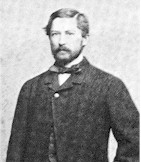
Francis Key Howard in an American Bastille:
“On the morning of the 13th of September, 1861, at my residence, in the city of Baltimore, I was awakened
about half-past twelve or one o’clock, by the ringing of the bell. When I opened it…two men entered…One of
them informed me that he had an order for my arrest.
In answer to my demand that he should produce a warrant or order under which he was acting, he declined
to do so, but said he had instructions from Mr. [William] Seward, the Secretary of State. [He] stated that
he intended to execute his orders and that resistance would be idle, as he had with him a force sufficient to
render it unavailing. I was told that I could remain no longer, but must be prepared to go to Fort McHenry.
I reached Fort McHenry about two o’clock in the morning. There I found several of my friends, and others were
brought in a few minutes afterward…fifteen in all. Among them were most of the members of the [Maryland]
Legislature from Baltimore, Mr. Brown, the mayor of the city, and one of our Representatives in Congress,
Mr. May. The rooms were in the second story of the building, and opened upon a narrow balcony,
which we were allowed to use; sentinels, however, being stationed on it. When I looked out in the morning,
I could not help being struck by an odd and not pleasant coincidence.
On that day, forty-seven years before, my grandfather, Mr. [Francis Scott] Key, then a prisoner on
a British ship, had witnessed the bombardment of Fort McHenry. When on the following morning, the
hostile fleet drew off, defeated, he wrote the song so long popular throughout the country, the
“Star-spangled Banner.” As I stood upon the very scene of that conflict, I could not but contrast my
position with his, forty-seven years before. The flag he had then so proudly hailed, I saw waving, at the
same place, over the victims of as vulgar and brutal a despotism as modern times have witnessed.”
(American Bastille, John A, Marshall, Thomas W. Hartley & Company. 1881, pp. 643-646)
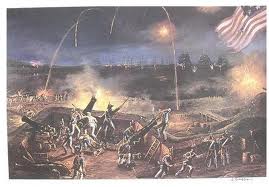
Historians as Camp Followers
“The Democratic party of the Civil War has not been well-served by historical scholarship.
To quote David Donald, in research in the politics of the period, the historian has been “a camp follower of the successful army.” American historians have agreed, more often than not, with the negative assessments of contemporaries.
They have pictured the party as divided into two main groups, the War Democrats, who basically suspended
partisanship, and the peace-at-any-price men, the Copperheads, who ran the party organization during the war.
Although recently modified somewhat by a number of shrewd reassessments, this picture still remains
the major theme of Civil War political studies.”
(A Respectable Minority, Joel H. Silbey, W.W. Norton, 1977, pp. xii-xiii)

“If the cotton States shall become satisfied that they can do better out of the Union than in it, we insist
on the letting them go in peace. The right to secede may be a revolutionary one, but it exists nevertheless.
We must ever resist the right of any State to remain in the Union and nullify or defy the laws thereof. To withdraw
from the Union is quite another matter; whenever a considerable section of our Union shall deliberately decide to go out,
we shall resist all coercive measures designed to keep them in. We hope never to live in a republic whereof one
section is pinned to another by bayonets.”
Horace Greeley, New York Tribune, November 9, 1860
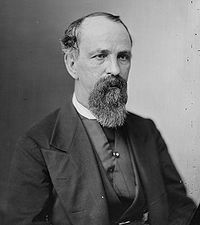
Samuel "Sunset" Cox of Ohio
“I would protest against this ambiguous policy of “ professing a war to preserve the Union but actually
fighting a war to abolish slavery. As for the cause of the war, he argued: “Slavery is the occasion,
but not the cause…but slavery agitation, North and South, is the cause.” Republicans were
condemned for working “to free the Negroes, regardless of Constitutional limitations and consequences.”
Republicans, Cox charged, were changing their attitude on the nature of the war. Where they first
asserted that it was not a civil war, now they were contending that the laws of war between nations
should apply and should make confiscation possible.
Northern States would not receive freed slaves, even though many “will be freed incidentally
by the war.” Indiana and Illinois, the President’s own State, already forbade the entrance of Negroes.“
("Sunset" Cox, Irrepressible Democrat, pp. 63-64)
Convulsion and Despotism:
“The trouble with the Republican party, the New York World summed up, “is that it not only claims to discuss,
but to decide; not only to tell a man that smoking is a nasty pernicious habit, but to knock the cigar out of his mouth.”
Obviously, if the Republicans continued in power they would ultimately destroy every shred of democratic choice
and free behavior in the name of their conception of the right. That was the ultimate threat.
As [Clement] Vallandigham [of Ohio] put it, “nothing but convulsion can come of this despotism.” If Lincoln
were to be reelected, “our Republican government is gone, gone, gone, and ere it is again revived we must
pass through anarchy in its worst form.” But the Republicans did not care. “I believe old Lincoln feels as
Sampson did at the gates of Gaza willing to destroy his country, his party, himself, if he can his opponents.”
(A Respectable Minority, Joel H. Silbey, W.W. Norton, 1977, pp. 76-77)
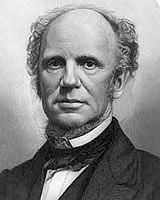
New York Governor Horatio Seymour
“As one looks back at the antics of the abolitionists – Garrison burning a copy of the Constitution in a
public square; Gerrit Smith playing “possum” at an asylum while the John Brown he had encouraged
was found guilty of treason and hauled out to be hanged; self-righteous ranters pleading from their pulpits
for the export of rifles to Kansas; industrious Mrs. Stowe embalming the slippery sentimentality of her
half-truths in the lachrymose pages of Uncle Tom’s Cabin; even Democratic David Wilmot trying to repair
with his famous proviso the political fences he had broken down with his vote for a lower tariff – there
come to mind the words of the ancient philosopher which a president of Yale was always happy to remember:
“Virtue is more dangerous than vice because the excesses of virtue are not always subject to
the restraints of conscience.”
(Horatio Seymour of New York, pp. 229-230)
Seymour's letter to Milwaukee Democrats on October 20, 1863:
"In the gloomy night which overshadows the nation, there is no hope but in the restoration to power of the
democratic conservative party. The fanatical leaders who precipitated this bloody conflict by underrating the South,
its resources and military ability, who scoffed at the Crittenden compromise and all other efforts to avert civil war---
who rejected the measures of the Peace Convention, and who, after war was forced upon us, have persistently created
obstacles to its vigorous and successful prosecution by perverting it from its original purpose, the restoration of the Union,
as solemnly avowed in our National Congress, into a hopeless Emancipation crusade, and by driving from the army
through abolition intrigues General McClellan and other officers of military capacity, to make place for political adventurers---
have, by their entire policy exhibited alike their incapacity to carry on a war or inaugurate peace.
Failing to crush the Southern rebellion, their entire energies seem now directed to the destruction of popular
rights and personal freedom throughout the North. Safeguards of Liberty wrested from despotism after a struggle
of centuries, are by them ignored or swept away. The substitution of an irresponsible military tyranny in place of law,
the suppression of free speech---the muzzling of the press, the mid-night seizure, mock trial and illegal banishment
of a distinguished citizen of Ohio [Clement Vallandigham], and that too in a loyal district, where the civil law is in
unobstructed operation---are among the mad acts, by which all constitutional and every principle dear to freedom,
are sought to be crushed and destroyed.
While we will freely expend blood and treasure to overcome [the South], we must with equal spirit and similar
sacrifices resist such treasonable usurpation at the North. The latter formidable and dangerous, because secret
and insidious in its advance, must be expelled at all hazards."
(Horatio Seymour of New York, pp. 352-353)
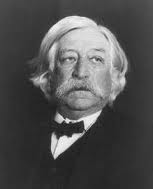
"Is Not Abolitionism the Cause of War?"
"But the War Democrats felt that they had been induced to support the war by false pretenses.
They had been assured that it was a war to save the union. Now it appeared to be a war to establish abolitionism.
It was said that slavery was the cause of the war. “But,” Fuller asked, “if slavery is the cause of the war, is not abolitionism?
Supposing slavery to be as explosive and destructive as gunpowder, where does the guilt lie of the catastrophe
following its ignition---on the inert material, or on him who applies the lighted brand thereto?”
“The Emancipation Proclamation,” he protested, “is predicated upon the idea that the President may so annul
the constitutions and laws of sovereign States, overthrow their domestic relations, deprive loyal men of their
property, and disloyal as well, without trial or condemnation.” The only possible course, he insisted, was
a return to the Constitution.
(Melville Weston Fuller, Chief Justice of the United States, 1888-1910, Willard L. King. MacMillan Company, 1950, pp. 54-56)
Crusading Republicans Incapable of Preserving the Union:
“Their [Northern Democrats] assault upon Republicans…”whose fanaticism” on the slavery question,
argued, “has precipitated the [present] misery upon us,” was violent. Democrats believed, as Congressman
Samuel Cox recalled five years later, that “there was a hope” that the South could be kept in the Union
by appropriate congressional policies. But they doubted if the Republicans were capable of preserving the Union.
“The Republican leaders are utterly blind to all dangers,” August Belmont complained at the end of 1860.
“I do not believe that the party intends making any concessions.”
The real key to the problem, as the Democrats saw it, was the Republicans’ extremist ideology
and the party’s resulting intransigence. The Republican party, they vigorously asserted, was bent on
an ideological crusade, “pressing the conservative masses beyond endurance” in their determination
to free the slaves and hurt the South. Republicans were willing to allow the union to be dissolved into
“an internecine war” for sordid partisan purposes.
They wished to impose their own permanent rule on a truncated Union in order to inaugurate
“old federalism,” with more than [a] federalistic tendency to strong central government….Will the people
stand this much longer? Will they consent to a dissolution of the Union to please the crazed fanatics
who have managed the antislavery agitation [and]…give up their national greatness, prosperity…for the sake
of worshipping according to the creed of Wendell Phillips?”
(A Respectable Minority, Joel H. Silbey, W.W. Norton, 1977, pp. 32-33)
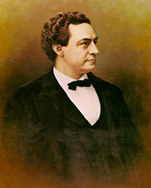
Republican Consolidationists of a More Ultra Type:
”A most remarkable similarity exists in the actions of [the Lincoln] Administration toward the people
of the North,” Congressman Samuel Randall of Pennsylvania charged in 1863, “and those that were
perpetrated by the Mother Country against the colonies.”
To Democrats, Lincoln’s government demonstrated that Republicans were “consolidationists of a more ultra type”
more than anyone had heretofore thought possible, more so than either Hamiltonians, Tories, or monarchists.
In particular, Republicans intended to use government power to impose rigid standards of personal behavior
on the lives of individual citizens.
To Randall and his colleagues, they were expanding the power of government into every nook and cranny
of being, appointing federal officeholders to supervise everyone’s life and depriving Americans of their liberty.
They were creating “an Absolute state asserting all the prerogatives of an infallible church.”
At the core of the administration’s behavior, the Democrats believed, was a puritan-evangelical perspective
originating in the history and traditions of New England religious beliefs. It was a perspective that fostered
an aggressive and uncompromising program of government intervention to order and direct individual behavior.
Puritan-dominated Republicanism had “asserted a higher law above the Constitution itself.”
Republicans believed that they had “a right to regulate the whole political, moral and religious world, and
that God has appointed them supervisors over the conduct of their fellow men, to control even their domestic
affairs.” They had “sought to do in the name of God, what could not be done in the name of the Constitution.”
In other words, their policies originated in “an imprudent assumption of a superior intelligence and a higher purity.”
They did not accept the right of people to differ about social or political matters. “The most malignant and bigoted
intolerance is a predominant element amongst those who follow the lead of the Puritan today.” Nobody “ever could
get along with the Puritan spirit of New England….It was a persecuting, intolerant, hateful and malignant spirit….
It was sour, narrow-minded and illiberal.”
The war had only brought out this tendency, sharpened it, and given it free rein in the policies of the
Lincoln administration. The results of Republican rule were clear, therefore American would become and
unacceptably restrictive society with a snooping, interfering government, forcing conformity to a narrow
k and diet…will only bring trouble as she persists in it….When preachers assume to be statesmen, and
direct the affairs of the country, it is no wonder that the country goes rapidly to ruin and destruction…”
(A Respectable Minority, The Democratic Party in the Civil War Era, 1860-1868, Joel H. Silbey,
W.W. Norton & Company, 1977, pp. 74-75)
Republican Defeat of Crittenden Compromise:
“From Buffalo, on January 18, 1861, [Horatio Seymour] wrote Senator [John J.] Crittenden of Kentucky
in support of his scheme of compromise. It was in his opinion that this “great measure of reconciliation”
struck “the popular heart.” James Ford Rhodes fortified one’s belief in the good judgment of Seymour
when he studied the defeat of Senator Crittenden’s proposals. In view of the appalling consequences the
responsibility of both Lincoln and [William] Seward for that defeat is heavy, if not dark – in spite of all that
historians of the inevitable have written of “this best of all possible worlds.”
The committee to which Crittenden’s bill for compromise was referred consisted of thirteen men.
Crittenden himself was the most prominent of the three representatives from the Border States. Of three
Northern Democrats, [Stephen] Douglas of Illinois, was the leader; of five Republicans, Seward was the moving
spirit. Only two men sat from the Cotton States, [Jefferson] Davis and [Robert] Toombs. Commenting on
the fateful vote of the committee, Rhodes observed:
“No fact is more clear than that the Republicans in December [1860] defeated the Crittenden compromise;
a few historic probabilities have better evidence to support them than the one which asserts that the
adoption of this measure would have prevented the secession of the cotton States, other than South Carolina,
and the beginning of the civil war in 1861…It is unquestionable, as I have previously shown, that in December
the Republicans defeated the Crittenden proposition; and it seems to me likewise clear that, of all the influences
tending to this result, the influence of Lincoln was the most potent.”
Two-thirds of each House…recommended to the States a compromise thirteenth amendment to the
Constitution, as follows: “No amendment shall be made to the Constitution which will authorize or give to
Congress the power to abolish or interfere, within any State, with the domestic institutions thereof, including
that of persons held to labor or service by the laws of said State.” Conservative Republicans voted with the
Democrats to carry this measure of which Lincoln approved in his inaugural address.
“As bearing on the question on whom rests the blame for the Civil War,” observes Rhodes,
this proposed thirteenth amendment and its fate is of the “highest importance.”
(Horatio Seymour of New York, Stewart Mitchell, Harvard University Press, 1938, pp. 223-224)
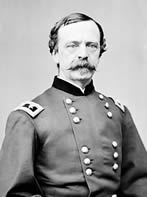
"Congressman Daniel Sickles, a Democrat from New York City, delivered a speech in the
House of Representatives on December 10, 1860 on the question of secession.
He opposed the use of force to retain States in the Union, making it clear that :
"When the call for force comes---let it come whence it may---no man will ever pass the boundaries
of the city of New York for the purpose of waging war against any State of this Union...the Union can
be made perpetual by justice; but it cannot be maintained an instant by force. [Sickles recognized
the right of secession]...as the last dread alternative of a free State when it has to choose between
liberty and justice. In our Federal system the recognized right of secession is a conservative safeguard.
It is the highest constitutional and moral guarantee against injustice; and therefore if it had been
always and universally acknowledged as a rightful remedy, it would have contributed more than all
else to perpetuate the Union, by compelling the observance of all their obligations
on the part of all the States.
The opposite dogma, which is so extensively believed at the North, that no matter
what wrongs a State may have to endure, it may and ought to be compelled by force to remain
in the Union, even as a conquered dependency, is a most dangerous error in our system of government,
and has contributed largely to the existing anarchy."
(The Secession Movement in the Middle Atlantic States, William C. Wright, Fairleigh Dickinson
University Press, 1973, pp. 189-190)
Sources & Bibliography
“Sunset” Cox, Irrepressible Democrat, David Lindsey, Wayne State University Press, 1959
Horatio Seymour of New York, Stewart Mitchell, Harvard Universtiy Press, 1938
Copyright 2011, North Carolina War Between the States Sesquicentennial Commission